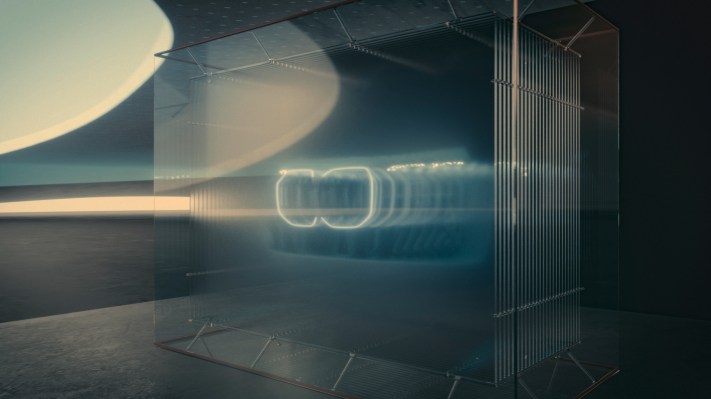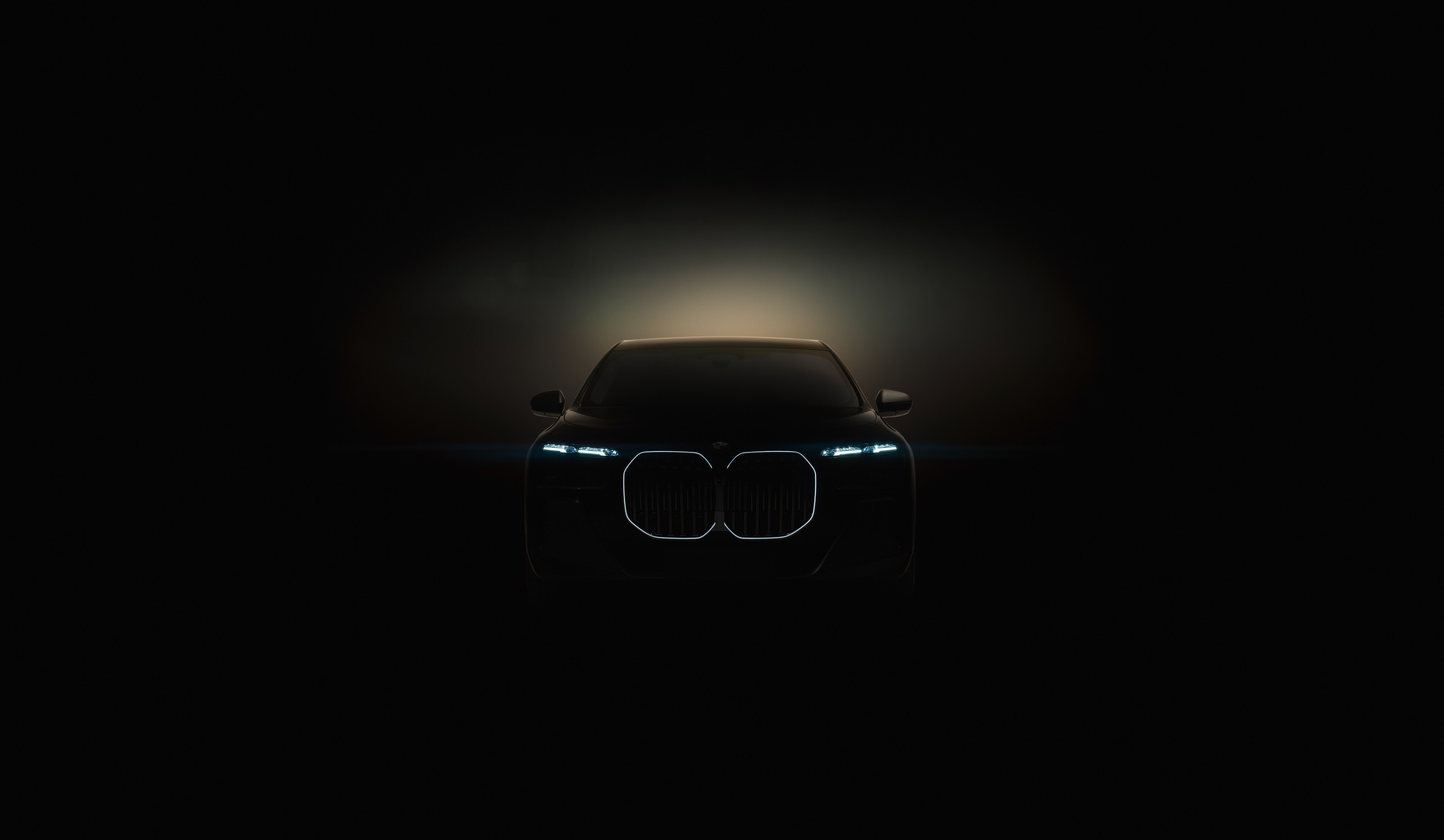[ad_1]
As BMW will get able to debut the following era of its 7 Collection luxurious sedan in April — and with that, the brand new all-electric i7 — the corporate at the moment turned the highlight on its general portfolio of electrical vehicles, together with the upcoming iX1, an electrified model of its fashionable small crossover SUV.
These will be part of the corporate’s expertise flagship iX and the sporty i4, which it introduced final 12 months. This, in fact, is all occurring in opposition to the backdrop of the worldwide chip scarcity and general provide chain disaster, in addition to now the struggle in Ukraine.
In a press briefing earlier at the moment, BMW CTO Frank Weber famous that manufacturing of the i4 will begin in the course of the 12 months, however for now, that’s actually all we all know. As for the i7, the corporate confirmed just a few teasers at its annual convention this morning, largely highlighting the automobile’s new (and enormous) kidney grille, which can certainly get the BMW followers speaking. For the i7, BMW guarantees as much as 305 miles of EPA electrical vary, which is in step with all people’s expectations. However as its flagship sedan, the 7 Collection and particularly the i7 are additionally the place the corporate will debut a variety of new tech.
“The 7 Collection is not only a product for us. The 7 Collection is a group of our capabilities. It’s what we’re actually capable of do. The i7 is just not solely essentially the most highly effective electrical car we are going to do, it has a cinema expertise within the second row, the doorways will open routinely and shut routinely — and it has an extended, lengthy checklist of issues. It has artwork mode, so it has actual digital artwork inside,” Weber stated — and he himself needed to snort a bit in regards to the extravagance of all of it.
How BMW is managing the chip scarcity
However these autos, in fact, are more and more complicated by way of the tech inside them and, as such, BMW (and all people else within the enterprise) has been affected by the chip provide disaster. That meant the corporate needed to pause placing touchscreens into a few of its vehicles for some time final 12 months, for instance. Weber famous that the chip disaster hasn’t modified the corporate’s general EV enlargement plans.
“It takes us a variety of power to deal with the challenges of the chip disaster,” he stated in at the moment’s assembly. “We’re actually happy with — as a workforce — if you see how we cope with a chip disaster, our manufacturing methods and our provide chain methods are actually versatile and we are able to react in a short time. This gave us a aggressive edge final 12 months. We consider this may also give us a aggressive edge this 12 months, however we anticipate that it will proceed for the entire 12 months.” He famous that the corporate initially thought the provision chain would get better by the second half of 2022, however BMW now believes it will proceed all year long. “Like we handled it final 12 months, we are going to cope with it this 12 months. We have now not modified any introduction dates, now we have not modified any quantity assumptions, assumptions on the delivery or rollout due to a chip scarcity,” Weber stated.
Likewise, he doesn’t anticipate the struggle in Ukraine to have an effect on BMW in the long term. However Weber additionally famous that the corporate will get its wiring harnesses from Ukraine, simply as a lot of its rivals, largely for the engine and transmission. Weber famous that this business employs round 20,000 individuals in Ukraine, largely within the western a part of the nation. “We don’t simply need to take away the work there. We have now duplicated machines with the intention to assist us now to construct up these wiring harnesses,” he stated, and added that, whereas there are just a few BMW engines that fully depend on wiring harnesses presently inbuilt Ukraine, by subsequent week, the corporate will be capable to resume regular manufacturing once more.
Qualcomm partnership
Weber additionally highlighted the corporate’s current partnership with Qualcomm and Arriver, the corporate’s software program arm for the mobility area. This partnership is much less in regards to the chip scarcity, but it surely does give BMW extra say within the tech stack for its autonomous driving methods and its infotainment choices. Weber additionally famous that this partnership is an instance of his firm eager about its provide chain in a extra world style as of late.
“This can be a world economic system, whether or not we prefer it or not. Regional options and never leveraging what’s out there globally can be such a setback for a way we’re used to doing distinctive merchandise, I can virtually not think about going again there. We’re related. And truly, I can solely hope that we are able to return to a few of this and never that, after this has been resolved, all people thinks now we have to unravel issues inside every area. It would merely not work.”
As for the general transfer to electrical autos, Weber was clear that BMW is just not setting an finish date for combustion engines. Earlier than even considering that, he argued, the charging infrastructure needs to be in place, along with the inexperienced electrical energy infrastructure to cost these vehicles and a strong circulation of uncooked supplies to construct batteries. BMW needs to ramp down combustion engine expertise and ramp up battery electrical autos.
“The very last thing we wish is — perhaps as a result of it appears to be politically acceptable — simply to chop off issues won’t work. It’s a must to guarantee that this ramp down and ramp up go hand-in-hand and go easily. These are larger industrial processes and this isn’t nearly single autos,” Weber stated. He additionally appeared considerably bullish about hydrogen, however for heavy vehicles extra so than for private autos, largely due to the burden it could take to place batteries right into a truck with sufficient vary.
[ad_2]


